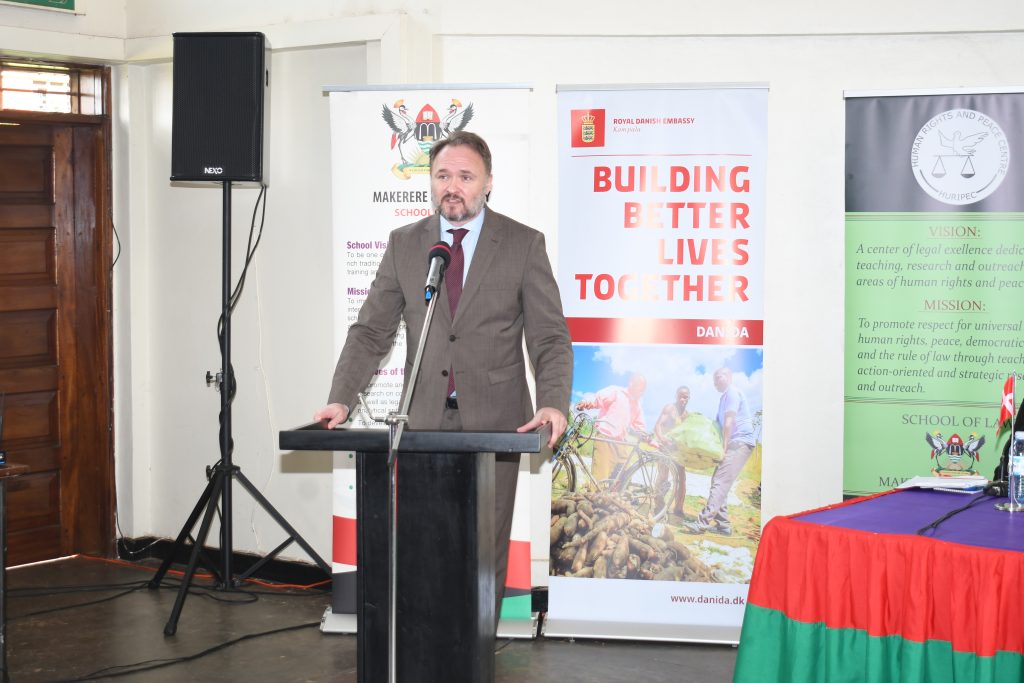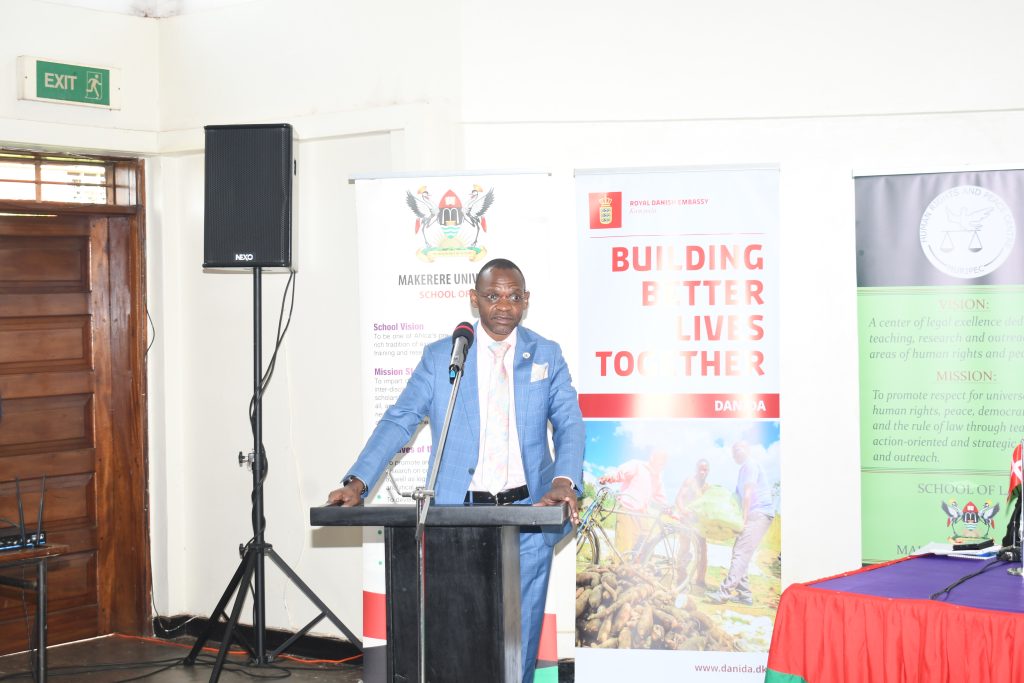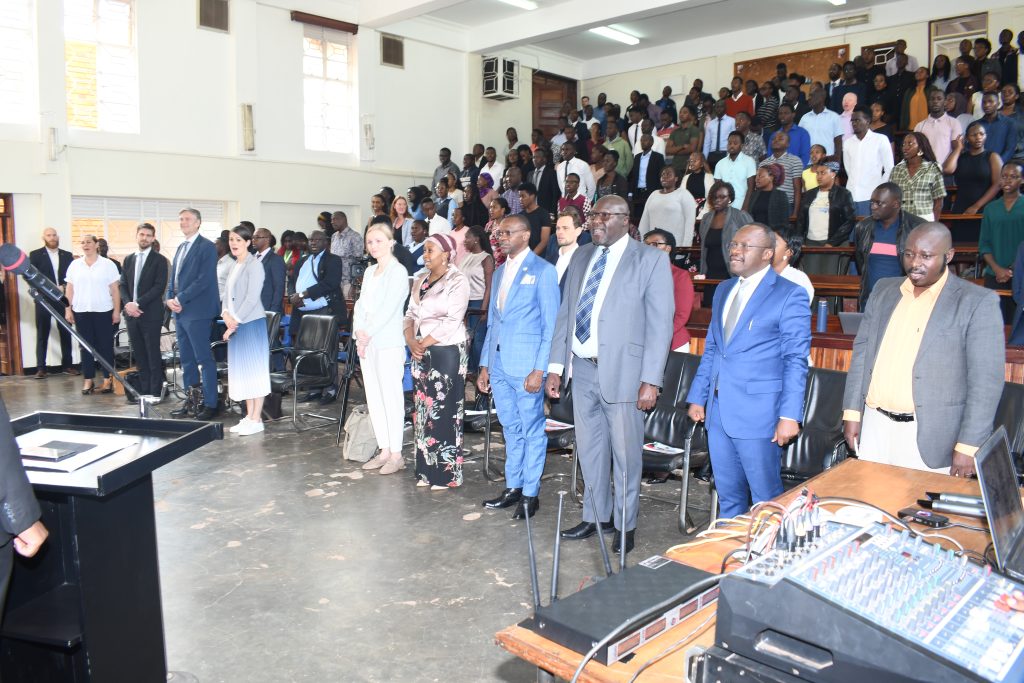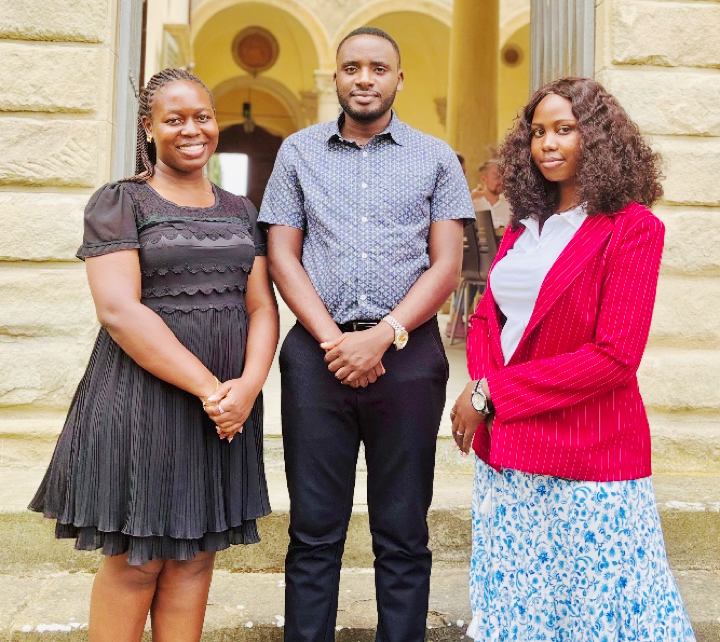Panel Debate on Uganda’s Just Energy Transition: Climate Change’s Decarbonization Dilemmas, Charcoal and Conflict
Makerere University School of Law organized a Panel Discussion Climate Change’s Decarburization Dilemmas, Charcoal and Conflict. The debate was held on 24th, January 2024, from the School of Law Auditorium. The event was presided over by Hon. Dan Jorgensen, Minister for Development Cooperation, and Minister for Global Climate, as the Keynote Speaker. The panelists included: Dr Mary Susan Abbo, Centre for Research in Energy and Energy Conservation (CREEC), Makerere University; Dr Sylvie Namwase, Human Rights and Peace Centre (HURIPEC), Makerere University, School of Law; Dr Brian Isabirye, Commissioner for Renewable Energy, Ministry of Energy and Mineral Development.

The panel debate explored how global climate change policies shape local energy transition and environmental affairs, such as charcoal politics. How energy transition affects socio-economic dynamics in energy-stressed countries down to local levels, and how to manage conflicts that may arise from transition.

The debate was driven under four main themes, including: How does global climate policy, in particular the outcome of COP28, shape the direction for energy transition and climate action in Uganda and Africa more broadly?; What does Uganda’s energy transition look like – the path from charcoal and unstainable biomass to modern, clean and affordable energy?; What social and political dynamics and conflicts may top-down (i.e. internationally and state-level decided) changes to the biomass/charcoal value chains in Uganda cause?; and How can peaceful and equitable pathways to energy transitions be developed to limit emissions and support local livelihoods?

In his opening remarks, Prof. Umaru Kakumba, Deputy Vice Chancellor (Academic Affairs), Makerere University, applauded the Danish government for their continuous support to Makerere University, Human Right and Peace Centre (HURIPEC). Prof. Kakumba noted the relevance of sustainable solutions and mechanisms in addressing the current dilemmas of climate variability by the globe. According to Prof. Kakumba, Emerging issues of mitigation & how we cope with emerging demands of our livelihoods amidst climate change and conflicts are very key and therefore calls for continuous engagements in order to find sustainable solutions and mechanism to help our countries survive.

The Minister for Development Cooperation and Global Climate Policy of Denmark, also the Keynote Speaker at the event, Dan Jørgensen noted the urgent need to mitigate climate change, that has evaded many countries severely. “climate change has become a serious issue, and if we don’t mitigate it, it will become even more worse. Climate change accelerates almost all other problem; we need to mitigate it by getting rid of fossil fuels. We need to make countries like Uganda more solid in terms of having solid food systems and livelihoods, he said” Hon. Jørgensen also noted the need for countries to work together, giving precedence to civil society and the private sector. “we need to ensure that the decisions made at COP23 meeting held in December 2023 in Dubai are proactively made, he said”. He also highlighted the need for a common differentiated approach in addressing climate change issues, were countries establish financial ties with others especially the developing countries. According him, all countries have a common responsibility of fighting climate change, but some countries are doing much more than others since these have experienced fossil fuels longer than others, and therefore incomparable. In his conclusive remarks, he Unveiled an estimated $95 Million Danish Government support for Uganda’s Green Economic Transformation, Climate and Supporting refugees.

During the debate, other members noted the need for inclusive policies as well as availing other sustainable energy alternatives in order to achieve the desired energy transition. For details on the debate, click the link below.




